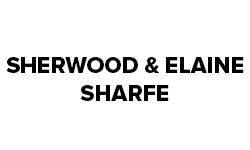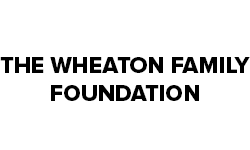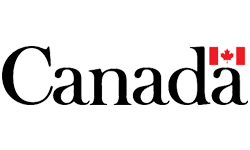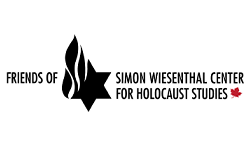Part B Learning Plan 20 -History, Native Studies, Social Studies
Inquiries are identified and connections to Big Ideas are noted. Teachers may begin with any inquiry or combine inquiries to use the approach that resonates best with their students.
Can global social justice be achieved?
- Are nation’s citizens part of the global community?
- Is Global citizenship a way to achieve global justice?
- Is Canada a responsible, respectful and participatory Global citizen committed to social justice?
Big Ideas Explored:
- History has contributed to the development of various solutions to Human Rights and Social Justice issues and Canada played a role in addressing these challenges.
- Canada has a history of action in seeking global justice and continues to have a presence in actions in seeking global justice.
- Canada’s citizenship performance can be contrasted to that of other nations.
- An ethical and democratic society defines and pursues justice and evaluates the effectiveness of those processes. Issues include:
- International Human Rights and Social Justice issues;
- conflict and dispute resolution forums (Court Trial, Sentencing Circles, Town Hall Meeting, Mediation, Truth and Reconciliation Commissions, Human Rights Tribunals)
- negative examples of conflict resolution and their residual impact (assimilation, annihilation, segregation).
- Countries must evaluate the use of force to achieve peace; and,
- Historic foundations impact current international issues.
Questions to Guide Inquiry
Essential questions are posted and discussed with students at the start of the exploration of study. These open-ended questions are continually revisited; encompass concepts that students will explore throughout the unit of study; form the evidence of understanding; and, frame the assessment at the end of the unit of study. Guiding questions are posed to support student thinking as they explore the answers to the larger overarching questions.
Teachers may want to consider putting the questions into a “Before, During, After” chart to note the changes in students’ thinking as a result of the inquiries.
- Why is there conflict between worldviews?
- With the current state of instant access to global information, what is the impact of conflict?
- Why do some conflicts gain global attention while others do not?
- How can conflicting worldviews coexist?
- Why do some conflicting worldviews co-exist while others do not?
- How does the immediacy of information impact global conflict?
- What range of responses have citizens used throughout history to respond to conflicting worldviews?
- Have responses changed significantly? What has caused those changes?
- How do engaged and respectful citizens respond to conflict in a modern democracy?
- What are the responses to conflict in a democracy vs. totalitarian state?
- How does an ethical and democratic society pursue justice?
- How do we evaluate the ethics and justice of a society?
- What role does ethics play in conflict?
- How do engaged and respectful citizens and nations respond to conflict in a fair and just way?
- What are the international change processes? How do we determine their success?
- What issues and opportunities does Canada’s multicultural policy and affirmation of diversity create?
- Does Canada’s multicultural policy result in a socially just society?
Surface and note additional student questions.
CONNECT TO TOPIC AND SURFACE STUDENTS’ THINKING ABOUT …
Identifying the factors that influence the achievement of social justice.
This inquiry focuses on the considerations of nations when trying to achieve social justice on global issues.
Inquiry
Can global social justice be achieved?
- Is global citizenship a way to achieve global justice?
- Are nations citizens in the global community?
- Is Canada a responsible, respectful and participatory Global citizen committed to social justice?
Hook Questions
- What is justice, and how do we determine this?
- Do we all agree on what is right? Why or why not?
- Whose perspective do we use to determine what is right?
- What do you have to think about when you are trying to achieve justice across a broad range of ideologies?
- What processes and institutions do Canada and the world communities have in place to protect justice and the rights of others?
- What happens when justice is not achieved?
- How do different societies and cultures administer justice?
- How do these processes compare to the way we, as Canadians perceive justice?
- How does Canada’s reputation compare to other historical applications of justice?
- What kind of a global citizen is Canada?
Pose questions and allow students opportunities to discuss. Note their thinking for review after completion of some research. How has their thinking changed?
Vocabulary
- Imperialist
- Assimilation
- Annihilation
- Segregation
- Democracy
- Totalitarian
- Ideology
DEVELOPING UNDERSTANDING
- Surfacing student thinking, posting, and then reflecting on thinking to note how thinking has changed and what has caused the changes. What is the evidence to support the new learning?
- Jigsaw strategy approach: Students, individually or in groups, explore similar questions, present their findings to the group. The teacher helps to note similarities, differences, themes. Students are encouraged to develop summary statements to clarify their thinking and describe new learning.
Using the jigsaw study approach have students choose one of the following to research individually or in groups. Specific suggestions are offered here but students are encouraged to identify any social justice issue that resonates with them to research.
Case Study Exploration suggestions
- the 5 genocides officially recognized by Canada
- the Holodomor (Ukrainian Famine),
- Rwanda,
- Srebrenica,
- the Holocaust, and,
- the Armenian genocide
- Hiroshima/Nagasaki
Contemporary Case Studies suggestions
- Global responses to Terrorism
- Global response to refugees and establishing of Immigration policies
- Global Warming
- Global treatment of Indigenous people
- Murdered and Missing Indigenous Women
- UN Refugee Agency – http://www.unhcr.org/cgi-bin/texis/vtx/home
- United Nations Development Programs – undp.org
For the example chosen identify:
- the stakeholders and the issues from their perspective
- the worldview/ ideology, and historical context that allowed this issue to exist.
- the response of global citizens to the events
- Canada’s response
- Evaluate the responses
- the influence of the event on individual and societal views of justice
- the impact of the event on differences in perspective and worldview on our perception of justice
- the influence of the event on your perception and pursuit of justice
Go back to the essential questions and have students reflect on their initial thinking. What changes are they finding after their research? How has their thinking changed?
- How well have nations been doing?
- What considerations do nations have to think about now, that were not factors historically?
- Which nations are doing well? Explain your thinking.
- Evaluate Canada’s role as a global citizen. Identify strengths and suggest areas where growth is needed.
Pursuit of Justice and Conflict Resolution Studies
Have students choose a topic of concern within one of the following areas and:
- Identify the issues on both sides of the debate
- Critique recent resolutions
- Propose alternative solutions
- Develop a media campaign to address some of your recommendations to address the shortcomings.
- Charter of Rights and Freedoms,
- UN Codes,
- race,
- religion,
- morality,
- law,
- politics,
- culture,
- economic trade sanctions,
- global warming – extremes in weather,
- use of global resources,
- response to global debt in Third World countries
- other
Historical Thinking Connections
Historical Significance: How do we decide what is important to learn about the past?
Primary Source Evidence: How do we know what we know about the past?
Cause and Consequence: Why do events happen and what are their impacts?
Historical Perspectives: How can we better understand the people of the past?
Ethical Dimension: How can history help us to live in the present?
Continuity and Change: How can we make sense of the complex flows of history.
- What themes are emerging?
- What are the similarities and differences?
- Why do students think this is so?
The independence level of the class, will determine how much teacher direction is required to do this.
APPLY AND EXTEND KNOWLEDGE
- Should respect for differing worldviews affect our pursuit of justice?
- Do universal human rights exist?
- How does technology and social media impact the outcomes of global justice issues?
- What kind of leadership is needed to address global issues?
Ted Talks – Ted Global 2014
EVIDENCE OF LEARNING
- What do you think now about…?
- What has caused your thinking to change?
- What evidence supports your thinking?
- Why is this information important to know?
- How will you use this information?
Can global social justice be achieved?
- Are Nations citizens in the global community?
- Is global citizenship a way to achieve global justice?
- Is Canada a responsible, respectful and participatory Global citizen committed to social justice?
- What responsibility do we have to pursue justice?
- Should respect for differing worldviews affect our pursuit of justice?
- Do universal human rights exist?
- Injustices of today have roots in the past.
- Canadian society is challenged to manage the co-existence of diverse worldviews.
- Canadian citizens work to achieve a balance between rights and responsibilities through learning and action.
- Canadian society has inequities and elimination of these is beneficial for all Canadians.
- For each individual, becoming aware of racism in Canadian society is an evolutionary process and a precursor to change.
- As citizens of local, national, and global communities, Canadians are conscious, self-reflective, and critical of their own beliefs and actions and seek to make positive change.
- Citizens show flexibility of mind.
- Why is there conflict between worldviews?
- With the current state of instant access to global information, what is the impact of conflict?
- Why do some conflicts gain global attention while others do not?
- How can conflicting worldviews coexist?
- Why do some conflicting worldviews co-exist while others do not?
- How does the immediacy of information impact global conflict?
- What range of responses have citizens used throughout history to respond to conflicting worldviews?
- Have responses changed significantly? What has caused those changes?
- How do engaged and respectful citizens respond to conflict in a modern democracy?
- What are the responses to conflict in a democracy vs. totalitarian state?
- How does an ethical and democratic society pursue justice?
- How do we evaluate the ethics and justice of a society?
- What role does ethics play in conflict?
- How do engaged and respectful citizens and nations respond to conflict in a fair and just way?
- What are the international change processes? How do we determine their success?
- What issues and opportunities does Canada’s multicultural policy and affirmation of diversity create?
- Does Canada’s multicultural policy result in a socially just society?
STUDENT CITIZENSHIP JOURNAL OPPORTUNITIES
Students are keeping a Citizenship Journal to reflect upon their developing views of citizenship. This section provides prompts for student journals. Students are invited to choose one that interests them or propose their own. Students can also respond to any of the essential questions.
Students are encouraged to respond using a variety of genres.
- What did I learn about myself as I did these inquiries?
- What kind of leadership is needed/required to address global social justice issues?
- What kind of leader would I be? Why?
- How would I have reacted upon hearing about the genocides, Holodomor, Holocaust, etc. at the time it was occurring?
- What advice would I offer Canada’s Prime Minister when creating policy pertaining to specific conflicts like Rwanda, the Armenian Genocide, etc.?
- What should be the global response to international acts of terrorism?
© 2024 Concentus Citizenship Education Foundation Inc. All Rights Reserved.










